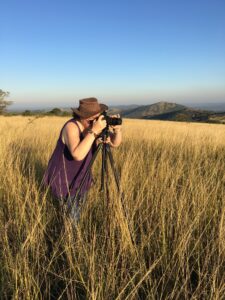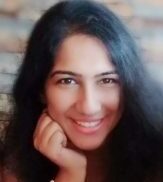Seher Hashmi’s poetry reflects a fierce commitment to challenging societal injustices. Inspired by her upbringing and her mother’s feminist activism, Seher has found her voice in highlighting the struggles of inequality and inequity through her collections Othered and Nots. Her work not only tackles economic and gender disparities but also pushes the boundaries of creative expression as an expat in the Middle East. Seher’s journey demonstrates the power of persistence and the need for creative voices to rise above obstacles, showing that art can be both deeply personal and a force for social change.
- What inspired you to create your poetry collections Othered and Nots, and how does your engagement with inequality and inequity influence your work?
A push back or a shove or not being able to be on par with others had triggered a desperate need to say it out loud. I preferred verse as a medium and Othered & Nots came into this world, soggy, intertwined toes, fuzz atop. My work is all about inequity. It’s the stimulus to my creative impulse. It spurs on my creativity. My themes, images, conceits and metaphors are all offshoots of a chemical reaction this engagement with inequality generates in me. In my poems, I lambast this unfair economic system, infuriate about gender discrimination, fume over class-binaries, holler at agents of inequity, and many a times poke fun at such forces.
- Can you share your personal journey and what led you to write poetry about social issues and personal experience?
I am raised by a single parent, my mother, who was a feminist poet and an NGO worker by profession. Her lifetime strife in a society where such families are stamped with a pejorative ‘broken family’ for our survival, for raising me and my siblings with an unwillingness to compromise her human dignity as a working woman from the struggling class had unwittingly exposed us to the patterns of systemic inequality and structural inequity. Fast forward many years, when I began to write this disparity was the angle I kept wiring my poems around.
- What were some of the challenges you faced while writing and publishing your poetry collections?
I am a Pakistani expat in Bahrain. We don’t have any publishing house or any imprint of international press for English language writers. Split between two countries, it gets very challenging where to pitch and how to find your target audience for marketing later. Not to mention how to find a way around the precarious nature of freedom of expression in the ME region with a vulnerable status of an expat.
- Have you encountered any struggles or obstacles in your creative process or in the reception of your work? How did you overcome them?
Oh, there were many hurdles. But my need to say had grown so huge that it kind of knocked out everything that came in its way.
- How do you balance your creative work with other aspects of your life and self-care?
I have a very empowering relationship with my work. I have found myself in it. In fact, my poetry has beckoned me to reclaim and value my essential human dignity. Because one compliments the other, nothing hangs askew.
- What strategies or practices do you use to stay inspired and motivated as a writer?
I put my writing on top of everything. And engage in all forms of external stimuli keenly. I read fiction and nonfiction regularly; attend writing workshops; perform my poems online or before live audiences and interact with the writers’ community with an open mind.
- What are some misconceptions about writing poetry or addressing social issues through art that you’ve encountered, and how do you address them?
ESL writing in British ex-colonies is considered a prerogative of the upper class. As if along with a silver spoon they were born with a golden pen too. And I am from the working class and went to those educational institutions millions of ordinary Pakistanis go to. Two of my full-length collections of poetry have hit the shelves and the debut Othered won The Daud Kamal award for the best book of poetry 2021 too. There is nothing elitist or prophetic about ESL writing and creativity for that matter. There was no precedent of an expat especially a woman & from Pakistan to pick on social issues in her work here in Bahrain. And I have pushed the boundaries in taking up social issues peculiar to the ME region in my work.
- How do you envision the future of your poetry and your engagement with social issues? What goals do you have for your future?
I want to carry on writing in all its varied forms/genres which come to me somehow spontaneously. I am very optimistic about the future of the podcast The Bookend I had founded for poets and writers.
- What have you learned about yourself through your writing and engagement with these themes?
I have discovered that my voice is precious and it’s possible and extremely important to keep voicing whatever I am passionate about against all odds.
IG: @midnitemusings and @thebook.end






